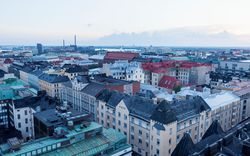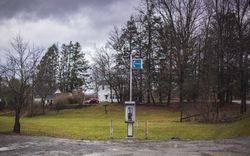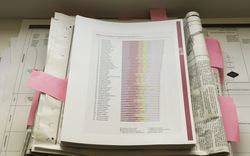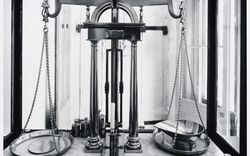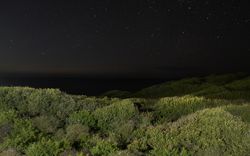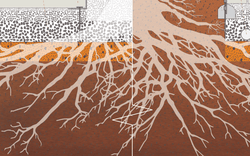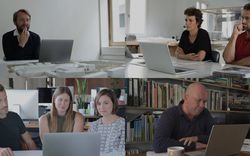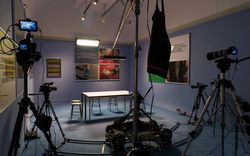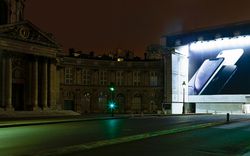Should we worry?
Drinks with Houssam Elokda, Tomos Lewis, Anna Minton, and André Spicer
How do we design cities in an age when our feelings are constantly tracked as the basis for a new mode of production? How do we conceive space when the language we use has less to do with architectural typologies and physical proportions than it does with moods and affects? As the first act of a three-part exploration, the exhibition Our Happy Life: Architecture and Well-Being in the Age of Emotional Capitalism examines how the so-called happiness agenda affects the built environment.
There were many questions written on the walls of Our Happy Life, like “are the producers of rankings the new designers of our cities?” For Act Two, we ask architects and thinkers to respond to and expand on topics we encountered during the research. We ask Reinier de Graaf (AMO), Dirk Somers (Bovenbouw), Stéphanie Bru and Alexandre Theriot (Bruther), and Studio Jan Gehl—architects practicing in different contexts and with various kinds of engagement with the happiness agenda: What should we do if they want to be happy? How should the role of the architect be revised in this system of new economic and political values?
This is Act Three. We invite Houssam Elokda (Operations Manager at Happy City), Tomos Lewis (Toronto Bureau Chief of Monocle), Anna Minton (author of Big Capital), and André Spicer (Professor of Organizational Behaviour at Cass Business School) for a drink in the galleries. In this final moment for broader reflection on the happiness agenda, we explore themes within the competitive market of rankings, the values embedded in and obscured by the production of apparently objective data, the new roles for smoothness and friction in public life, and the happiness agenda that has affected our understanding of and attitudes toward the environment. To debate the role of happiness in urban life, we ask if the happiness agenda can be saved or if it should be abandoned. Would we be better off without happiness as an objective for our cities?





Houssam Elokda, Tomos Lewis, Anna Minton, and André Spicer spoke with Francesco Garutti and Lev Bratishenko after the closing of the exhibition Our Happy Life: Architecture and Well-Being in the Age of Emotional Capitalism.
